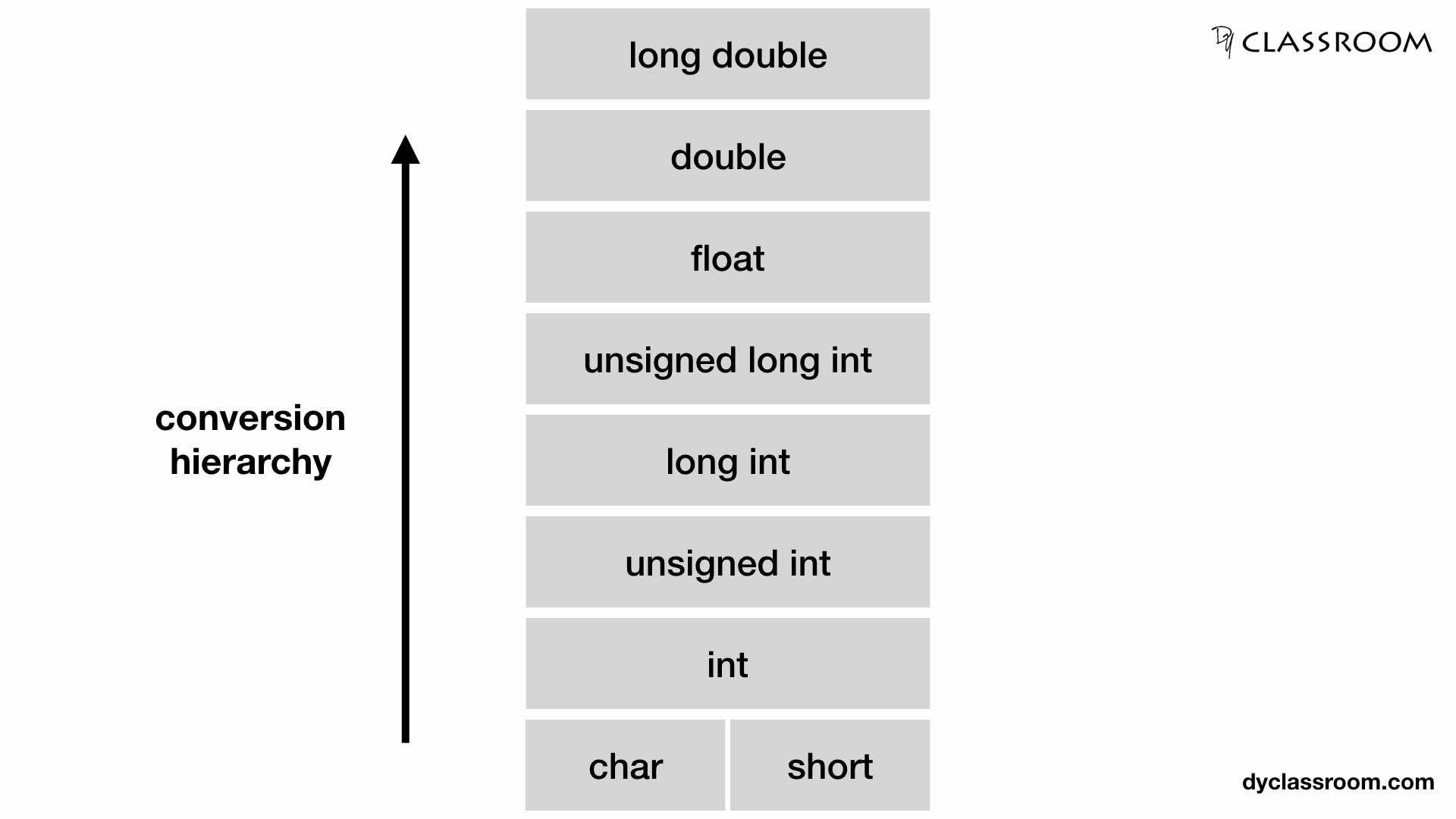
C - Type Conversion
C Programming

In this tutorial we will learn about type conversion in C programming language.
In C we can have expressions consisting of constants and variables of different data types.
Types of conversions
There are two type of conversions in C.
- Implicit type conversion
- Explicit type conversion
Implicit type conversion
C performs automatic conversions of type in order to evaluate the expression. This is called implicit type conversion.
For example, if we have an integer data type value and a double data type value in an expression then C will automatically convert integer type value to double in order to evaluate the expression.
Rules for implicit type conversion
Following are the rules for the implicit type conversion in C.
First, all char and short are converted to int data type.
Then,
- If any of the operand in the expression is
long doublethen others will be converted tolong doubleand we will get the result inlong double. - Else, if any of the operand is
doublethen other will be converted intodoubleand the result will be indouble. - Else, if any of the operand is
floatthen other will be converted intofloatand the result will be infloat. - Else, if any of the operand is
unsigned long intthen others will be converted intounsigned long intand we will get the result inunsigned long int. - Else, if any of the operand is
long intand another is inunsigned intthen,- If
unsigned intcan be converted tolong intthen it will be converted intolong intand the result will be inlong int. - Else, both will be converted into
unsigned long intand the result will be inunsigned long int.
- If
- Else, if any of the operand is
long intthen other will be converted tolong intand we will get the result inlong int. - Else, if any of the operand is
unsigned intthen other will be converted intounsigned intand the result will be inunsigned int.
Remember the following hierarchy ladder of implicit type conversion.

If we downgrade from a higher data type to a lower data type then it causes lose of bits.
For example: Moving from double to float causes rounding of digits.
Downgrading from float to int causes truncation of the fractional part.
Explicit type conversion
In explicit type conversion we decide what type we want to convert the expression.
Syntax of explicit type conversion is:
(type) expression
Where, type is any of the type we want to convert the expression into.
In the following example we are converting floating point numbers into integer.
#include <stdio.h>
int main(void)
{
//variables
float
x = 24.5,
y = 7.2;
//converting float to int
int result = (int) x / (int) y;
//output
printf("Result = %d\n", result);
printf("End of code\n");
return 0;
}
Output
Result = 3
End of code
In the above code (int) x converts the value 24.5 into 24 and (int) y converts the value 7.2 into 7 so, we get 24/7 i.e., 3 as result because result is of type int and hence the decimal part is truncated.
ADVERTISEMENT